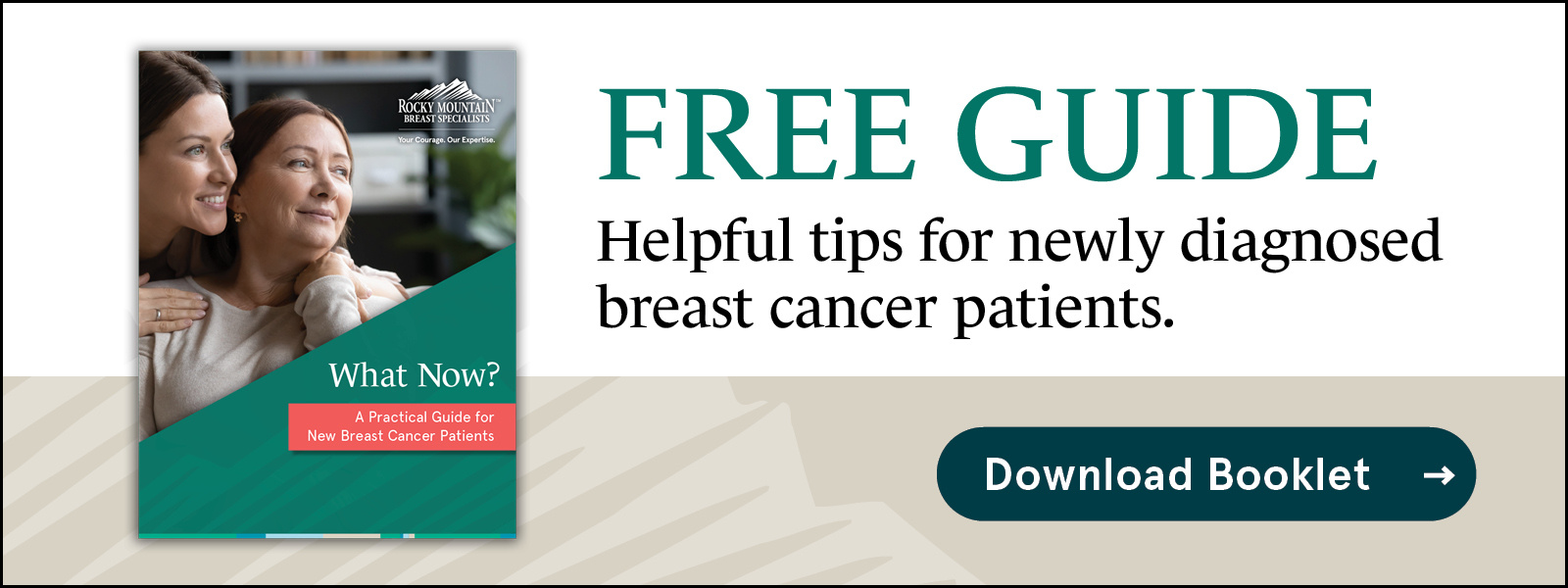Can Breast Cancer Be Hormone-Positive and HER2-Positive?
5 min read

Did you know that breast cancer is actually made up of many sub-types? The best treatment for breast cancer depends on the type that’s determined during the diagnosis process. With the huge advancements in the categories of breast cancer treatments through clinical research, there are now therapies that are meant to slow or stop the growth of cancer cells by blocking hormones, HER2 protein – or both.
What is Hormone-positive Breast Cancer?
Breast cancer cells may have extra receptors on them to attract hormones such as estrogen, progesterone, or both. Hormone-positive breast cancer uses hormones to fuel the growth and spread of the cancer.
In a breast cancer biopsy report, you may see phrases such as
- Estrogen receptor-positive breast cancer (ER+) means it has estrogen receptors.
- Estrogen receptor-negative breast cancer (ER-) means that estrogen is not fueling the growth of the cancer.
- Progesterone receptor-positive (PR+) means it has progesterone receptors.
- Progesterone receptor-negative breast cancer (PR-) means that progesterone is not fueling the growth of the cancer.
Collectively you may see that the cancer is referred to as either hormone-positive (HR+). This means that receptors were found for estrogen and/or progesterone on the cancer cells.
What is HER2-positive Breast Cancer?
HER2 is a protein that helps cells grow. Some breast cancer cells have extra receptors for the HER2 protein, making them grow rapidly. About 20% of all breast cancers have higher than normal levels of HER2, called HER2-positive (HER2+). HER2+ cancers grow and spread more quickly than HER2-negative (HER2-) cancers. HER2- cancers don’t respond to drugs targeting HER2 receptors.
Some patients may have some level of HER2 overexpression, but not enough to be considered HER2-positive. Read more about this in our blog.
Can I be Both HR+ and HER2+?
Yes, about 10% of all breast tumors are both hormone receptor-positive (HR+) and HER2-positive. Many breast cancers are sensitive to a woman’s hormones: estrogen and progesterone.
Breast Cancer Treatments are Based on Hormone Receptors and HER2 Receptors
Specific treatments are intended for women with hormone-positive breast cancer and for women who are HER2-positive. Once your oncologist has determined the type of breast cancer, he/she can decide on the best treatment for you.
Hormone therapy is one part of the treatment plan, often used after breast cancer surgery to help prevent cancer from returning. But it can be used before surgery to slow the growth of the cancer. Hormone therapy blocks the hormones from attaching to the receptors on the breast cancer cells. This basically starves the cancer cells and causes them to die.
Hormone therapy can be used for up to five years after a diagnosis and is proven to lower the risk of breast cancer recurrence for these patients.
Targeted therapy is used for HER2-positive breast cancers, slowing the production of HER2 protein.
Hormone therapy and targeted therapy are used in combination with surgery and radiation therapy for many patients and some patients also receive chemotherapy. The breast cancer care team will work together to discuss the best timing for each treatment in the process.
Targeted Therapy for HER2-positive Breast Cancer
How Are Treatments Different for Cancer That’s Both HR+ and HER2+?
Breast cancers that are both HR+ and HER2+ are treated in one of three ways: hormone therapy alone, targeted HER2 therapy and chemotherapy combined (hormone therapy may be added later), or hormone-targeted therapy with the later addition of targeted HER2 therapy and chemotherapy.
Thanks to clinical research, the most recent treatment guidelines recommend a combination of hormone therapy and anti-HER2 medications without the use of chemotherapy. Hormone therapy can be used to maintain the patient if they cannot tolerate chemotherapy. It can also be used after chemotherapy for maintenance treatment.
What’s the Prognosis if You’re HR-positive and HER2-positive?
Breast cancer prognosis has improved dramatically in recent years because treatments are now specifically targeted to your cancer’s hormone receptor status. There are differences in survival rates for subtypes of breast cancer. Women who have HR+ and HER2- breast cancer have the best survival rates overall. In later stages, women with HER2+ tend to survive longer than those with HER2-. TNBC has the lowest survival rate.
Survival rates at four years post-treatment are:
- HR+ with HER2- is 93%
- HR+ with HER2+ is 90%
- HR- with HER2+ is 83%
- HR- with HER2- is 77%
Read more in our blog about breast cancer survival rates.
What if You Are HR-negative and HER2-negative?
Some breast cancers have neither hormone receptors causing the cancer to grow, as well as no sign of overexpression of HER2 protein. This is called triple-negative breast cancer. The treatments for this type of cancer will be different than what’s recommended for someone who is hormone-positive and/or HER2-positive.
Triple-negative breast cancer is the fastest-growing and spreading type of all invasive breast cancers. It’s more common in younger women, black women, or women who have the inherited BRCA gene mutation. There are treatment plans for this type of cancer, however, they tend to be harder to slow down because of the lack of hormone receptor and HER2 protein overexpression. Because of this, the survival rates are lower.
Read more about triple-negative breast cancer on our blog.
The Role of Breast Cancer Clinical Research
Extensive clinical research over the past 30 years has dramatically improved outcomes for breast cancer patients. It’s because of research that we’re able to identify subtypes of breast cancer and have treatments that are specific to each. That research continues as more cancer subtypes are identified, and drugs are developed to treat them. The Rocky Mountain Breast Specialists team actively participates in clinical research studies available to some breast cancer patients. Talk to your oncologist about whether a trial is right for you.
Next Steps After a Breast Cancer Diagnosis
If you were recently diagnosed with breast cancer we recommend you download our guide below, and visit our page for newly diagnosed patients. Then request an appointment at one of our breast cancer centers in the greater Denver area, Boulder, Colorado Springs, and throughout the Front Range.

